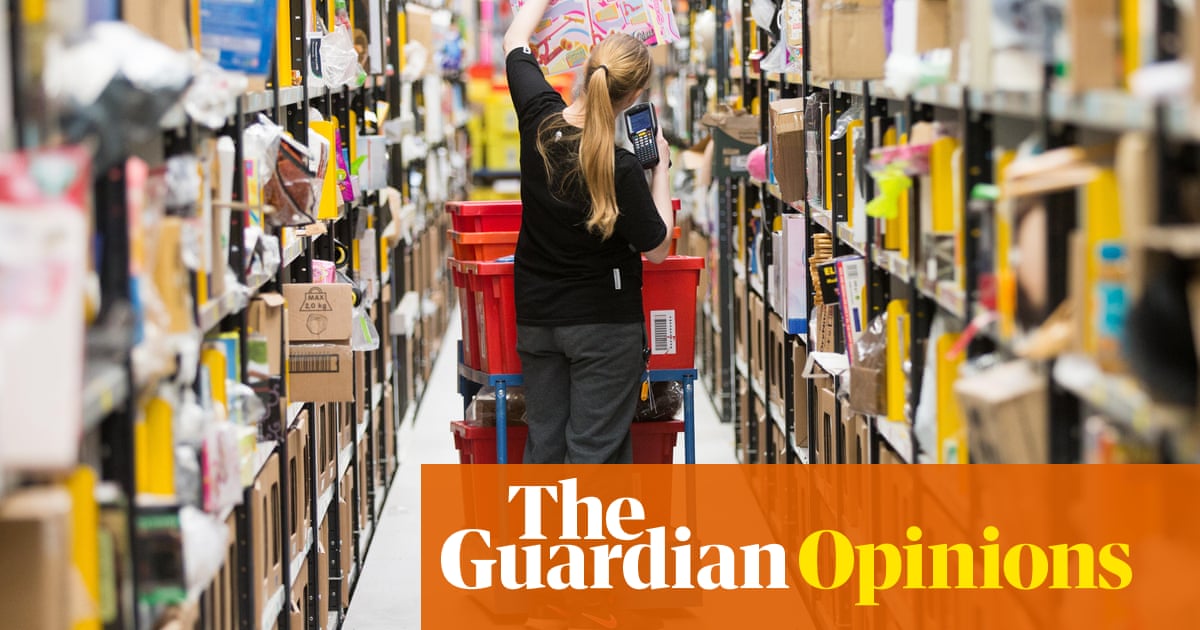I’m a simple girl. My idea of fun is an annual event in which people are crushed in pursuit of half-price Christmas decorations. But those days have passed. Welcome to the era of the always-on sale.
If you’re into capitalist nightmares, you might like EOFY sales, Oh No We Forgot EOFY sales, SOFY sales, Father’s Day sales, AFL grand final sales, and “my boss doesn’t want me to send this email” sales. Then we go headlong into Australia’s Black Friday sales, which start around the beginning of November and last until January, as is tradition (though not ours).
In fact, there is no longer a reason to leave anything on the shelf. Every minute of every day, something is marked down and waiting for your card details, as long as you’re willing to compromise your moral and ethical obligations to the planet and those who live here. Full price is dead, long live the sale.
We’re now in the throes of Prime Day, an event that defies the laws of time and space to inhabit a full week and is expected to generate US$23bn in sales for Amazon and its third-party sellers. For a mere 168 continuous hours, shoppers are given the option to support a global capitalist behemoth as it asks the question, “Do you need a walking desk, cat food and a 30-pack of crew socks?” To which we reply, “Yes but only if you massively accelerate climate change by delivering it tomorrow.”
I remember a time when Prime Day (which 10 years ago lasted only 24 hours, like human days) was duly criticised by the press, at least in this country. Australia of old was proud of its anti-capitalist image. We didn’t need newfangled gear with “batteries” and “screens”. We wore the socks our grandmother gave us on our 10th birthday. When our kettle broke, we went to the shed and taped it up again.
No longer. TikTokers, YouTubers, bloggers and other taste makers – including serious news outlets – have jumped on the chance to scour Amazon’s endless library of cheap labour to find the best deals. It’s running ads like editorial. Prime Day isn’t just a sale, it’s fodder for desperate content factories – again, including serious news outlets – looking for literally any topic that could become clicks that become Meta revenue that becomes sweet affiliate link cash.
Now, for the everyman, there’s no denying the bargains. Everything you could never need is here. Phones. Perfumes. TVs. Baby wipes. Scrolling the long, long, long – long long long – list of sale items is overwhelming to the point of delirium. Luckily, if you can’t decide what to buy, Amazon’s personal assistant, Alexa+, can make suggestions. Your phone? Too slow! Your treadmill? Too bulky! Your energy drinks? Not bulky enough! And where does your old stuff go? Who cares!
It’s easy to criticise Amazon. It pays little tax. In 2023 its US warehouse workers were allegedly injured on average twice as often as its competitors. Almost a hundred private planes flew into Jeff Bezos’s Venetian wedding. It’s an enormous contributor to the global waste problem – according to one source, to the tune of 599m pounds of plastic packaging waste in a single year.
That’s Prime Day – week, year – in a nutshell. A wasteful company wastes people’s money to generate more waste. Thousands of product thumbnails gradually blur together to form one giant garbage pile floating in the Pacific Ocean (if you’re not sure what that is, there are books about it on Amazon).
High-income countries – like the US and Australia, where it’s possible to get same-day delivery yoga pants – produce more than one-third of the world’s waste. Globally, over the next 25 years municipal solid waste, like homewares, clothes and electronics, are expected to increase to 3.4bn tonnes.
Prime Day has no regard for these numbers. It’s a crude marketplace in the spirit of perpetually closing-down rug shops and video game stores. It’s designed to bamboozle. It disguises itself as a social event, encouraging us to plan our wishlists, share our carts with friends and post haul videos to prove the sickness consumed us. It’s built to confuse us into thinking we need a second air fryer or a hedge trimmer or an automated bird feeder. And it insults us if we disagree: oh human, just let our AI shop for you.
I’m not a sale prude. I live for the dopamine hit of a bargain. My postie knows me by name and parcel frequency. And, full disclosure: I have an Amazon account and occasionally order sports bras and nail polish. But I cannot, as the youth say, fuck with the heavy-handed push towards junk I don’t need to replace stuff I never wanted.
Source link
